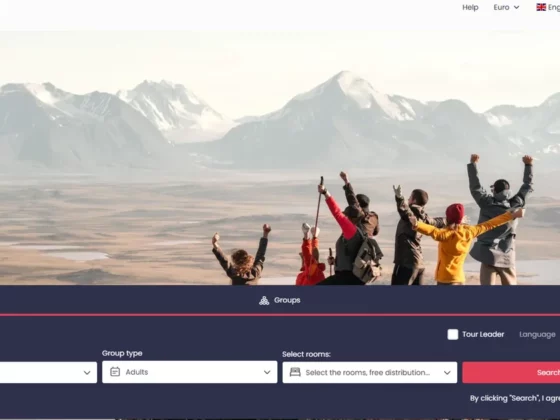Josiah: Earlier this year, Jake Wurzak, founder and CEO of Dovehill Capital Management, joined us to talk about why investing in hospitality is so interesting.
Jake: If you really know what you’re doing, you can create great value in the real estate, but you can also create tremendous value in the operating business, which eventually falls to the bottom line for all of the investors. The other thing, which is not something to just joke about, it’s a reality, people often invest money in the stock market or in venture funds, and they don’t really get to see and touch and feel where their money’s going. In a hotel, you can do that. We get investors all the time that stay in our hotels And it’s fun. And then they email me and tell me what they like and what they don’t like. And I go back and forth. And it’s an experience that is unique.
Josiah: Of course, there’s been a lot going on in the world of hotel investment over the past year. And in this episode, Jake shares what he finds interesting as we head into 2024, as well as some of the benefits of being vertically integrated, not just investing, but operating hotels as well.
Josiah: I wonder if we could talk a little bit about what’s exciting for you in the world of hotel investment, hospitality investment right now.
Jake: Josiah, there’s not a lot of interesting things out there, which is kind of interesting. And that I think means that This point in time could be the best time to invest. When a lot of private equity firms are sitting on the sidelines, everyone’s looking around, all these big fancy investors are looking around waiting for someone to go. Well, there is an opportunity for firms like mine to be firstmovers in certain very specific categories in which we have a lot of expertise and skill. Then, eventually, others will follow in. But being so close to the hotel operation side, we have a vertically integrated management company. knowing certain markets really well, gives us a competitive advantage to layer on our value-add skillset. The other interesting thing, I think we’re at a moment in time where kind of rates are high and we figured out some pretty innovative approaches to get equity-like returns in kind of a credit debt-like instrument. And simply put, that’s preferred equity, or you could call it structured equity. During COVID, we did about nine or 10 transactions in structured equity and the fund that those are in is performing really well right now because we knew how to make the bets. We could move quickly. We knew how to structure them in a way that not many people were doing. We thought about it differently, but we also were able to make the proposals and get the deals done because of who we were, the relationships that we had and what we knew about the business. A lot of people who would structure the deals in the way that we were structuring them might be like a hedge fund or a guy sitting in an office in New York, just banging out in a sell spreadsheet, but doesn’t have the practical knowledge that we have. And because we have that knowledge, we knew how to negotiate the deals in a fair way to actually get the deals done. And there are opportunities like that today. So I would say the one silo is structured equity and preferred equity. They’re basically the same thing.
Josiah: For those brand new to that space, how would you define this in kind of the simplest terms?
Jake: I’m going to do a podcast episode where I kind of break down some of our secrets. It goes back to the whole thing. Like I’m not really worried about the secrets because I don’t think it’s a zero-sum game and we’re really good at it. So if other people are doing it fine, but whatever. So very simply what preferred equity is, if you think of it. typical real estate transaction, you have debt and equity. And in that most basic transaction, debt gets paid first at typically some sort of a fixed rate or a floating rate. That’s very calculable. And then equity gets paid. Second preferred equity slots right in between like a hamburger in between debt and equity. So once the debt is paid, then the preferred equity gets paid. Then the common equity gets paid. The sweet spot and how to execute on these deals to create the equity-like returns in a preferred equity position is all in the negotiation. It’s all in the structure. So what we do often is we structure these deals so that we don’t have current pay. So we’re not like a Mez lender requiring payment and praying that the common equity gives back the keys. We actually want the common equity to be successful and maybe we’ll have a backend kicker. But why preferred equity works so well is after a certain point, the preferred equity either stops or gets diluted. So the common equity, if the deal is successful, can actually get a greater return with preferred equity. than without preferred equity being in the deal, which is why it’s so unique and why we’re able to be so successful. The other thing is right now when lenders are requiring pay downs to debt. How do you pay that money down? Well, you can pay it down with preferred equity and that’s the like Goldilocks situation because I’m now using preferred equity to pay down leverage. So my basis is lower, but somehow I’m still earning equity-like returns before the rest of the common equity that’s behind me. So we’re going to be raising a new fund and that’s going to be one of the key strategies in the fund, like it was in our first one.
Josiah: Thanks for that explanation. And so that’s kind of one of the core areas that you are looking at, have done a whole string of deals with. You said there’s also some another area that you’re looking at.
Jake: Yeah. And that would, I guess, break into the highly differentiated assets in markets that we know where we can create value with our skills on the management side, on the deal structuring side, and also on the purchase side. But these are assets that are experiential in nature, and maybe there’s something special about the building. They are unique. They are non-commoditized hospitality projects because where we get energy as a company is focusing an immense amount of time on assets where it’s worth our while. And we get a lot of gratitude for doing it. I always say, if you’re going to be in the hotel business, you better like the hotels that you own, because if they’re just random commoditized hotels anywhere in the USA, maybe you should be in the multifamily business. Because if you’re going to go through the pain and suffering, at least have it be on an asset where you can reap the rewards of those painful moments. And you can use your mind. to think of ways to add value and out-compete your competition in more ways than you could in other asset classes. So that second category is really highly differentiated hospitality assets with a focus on experiential hospitality, boutique hospitality with a strong leisure focus in great markets that are high barrier to entry. Every market probably today is going to have like limited supply, except maybe Nashville, Austin and diversity of demand. We want heavy leisure, but we want diversity of demand. So a little bit of corporate, a little bit of business, a little bit of fun weekend stuff, and then obviously the leisure business. So that is really the two categories. And then there’s maybe a third category where, because we’re in these certain markets, we are going to see opportunities that others won’t. They’re going to be great deals and we have the opportunity to enhance them, but they might not be the coolest, hippest motel or boutique hotel. They might be a DoubleTree or a Sheraton, or we just closed a Hilton Homewood deal. Why did we do that deal? Because I bought it cheaper than anyone else could buy it. And we bought it at a point in the cycle where it was really at the bottom and we are coming into a recovery period. So we’re going to see a couple of those in markets that we know really well.
Josiah: I wonder if you could speak a little bit to the advantages of being vertically integrated. Not only are you running DoveHill, but you’re also the CEO of Wurzak Hotel Group, and you have an incredible team of people there. If I think about people like James Ferguson, who’s been on the show a number of times, if I think about culture in hospitality, I think about James, right? Every time I open LinkedIn, there’s another video of him. engaging the teams, you feel the energy even from a distance, even through social. But I guess on a kind of a high level, what are some of these advantages that this gives you as an investor, in that you’re managing your hotels?
Jake: Well, that’s just it. We can differentiate ourselves and be closer to the asset than any other investor, because we actually manage the asset. So for some part of the business, we create like a little Chinese wall. So there’s a slight division between the investment side and the management side. In other areas, there’s no division and we can get our hands dirty and we have access to information and we know what’s going on. James Ferguson’s a great example. So he works in our people department, our people and culture department. Kelly leads that department and they have done incredible things over the past year. Four or five years ago, I had a meeting with James today. It was a big team meeting. Four or five years ago, we looked like a completely different company. Two years ago, we looked like a completely different company. And what’s changed over the past two years or so is culture and leaning into that culture because it is hard to hire people. It’s hard to find people and we are building a differentiated management company that really focuses on people that places an emphasis on culture because the end of the day, how you win in hospitality is with service and exceeding guests expectations because they keep wanting to come back to your hotel. People have to be happy about working in their hotel. And these are the kind of insights and this is the kind of impact we can have with both an investment company and a management company. There’s no filter in the data coming back. I have access to obviously both sides of the data because I’m the CEO of both companies. We have a president of the management company, Eric Davies, and my head of investments, Charles, he is not on the management side, but can get access to anything immediately. And it also allows us to collaborate in ways that you couldn’t if you had a management company reporting to an investor. For example, we had our monthly team meeting this morning, and everyone was in a room, our investment team and our management team, reviewing the numbers, giving ideas, being open about the challenges, providing solutions. James came up with an amazing idea about an issue we were having with guest service scores. Then Ross on our revenue team chimed in. Ben, who is a VP of operations, been with us for over 20 years, kind of brought it all together. And now we’re going to take a team of three of those people with the influence of our investment team to then go come up with a plan to standardize how we’re looking at guest service scores on a monthly basis and the actions we’re taking to ensure that if there’s a problem at one hotel, we know what the problem is and we’re fixing it. And then also to get in front of problems before they happen by gamifying certain service scores and other things. So I’m really excited about where the team is today. And we had a team. meeting, as I mentioned today, and if you look at the same team meeting that we might’ve had a year ago, it’s almost a 180-degree transition. That’s because we’re firing on all cylinders from the culture side, from the operation side, and from the data side. Certainly we might have different performance at different hotels. Some might be up, some might be down, some might be flat, but from a company standpoint, We know where the issues are. We know where the opportunities are because we have this great collaboration that’s enhanced by data technology and a lot of confetti with James.
Josiah: Gotta love that confetti! This is where the magic happens, right? I think it’s the cross-functional leaders working together. But I think this is what’s especially compelling to me about what you’re doing is both the investment side and the operating side working together, because you can’t realize full potential without these two elements of a hospitality business in concert. So that’s awesome to see.
Jake: I can de-risk an investment because I have insights into the operations side. So we might know certain deals that we want to get into. We might know certain deals we want to stay away from, and that gives us a competitive advantage. It also gives us a competitive advantage when we talk about our investment company. Josiah, you invested with us, right? Why would you invest with us? You just shared that a reason partly was because we operate our hotels. By the way, maybe we’re not the best operator, okay? Maybe we’re only eight out of 10 on an operator scale. I don’t know. Maybe we’re nine out of 10, but the fact that we control it gives us an advantage over an 11 out of 10 operator because of the symbiotic nature of both companies. Now it’s been hard to get there. We weren’t always like firing on all cylinders. You have to work at it, but when you get it and we’re definitely there right now, it’s going to create opportunities. It’s going to enhance our current hotels and definitely distinguish us from other groups that just do maybe one or the other.
Josiah: As you look to the year ahead, you touched on a lot of things that are exciting in the world of investment, the world of hospitality. Is there anything else kind of you’re especially excited about or things on your mind as we look to the year ahead?
Jake: I’m excited about a lot of things clicking. The hotel industry, believe it or not, there’s certain markets that just boomed after COVID, right? They’re well above 2019 rates. Across the board in our portfolio are all higher than they were in 2019, but occupancy, depending on the market is not always higher than it was in 2019. And we’re now starting to see portfolio-wide, just consistent momentum. Whereas last year in the year prior. ups and downs, then you had challenges with cash flow, you had challenges with lenders, you had refinancings. I’m excited to focus on profitability cashflow distributions across our great portfolio. And then I’m also excited to raise a new fund and do some more transactions in an area where I believe there’s going to be tremendous opportunities given where debt markets are today, given where we are with renovation cycles and hold periods and those sorts of things.




